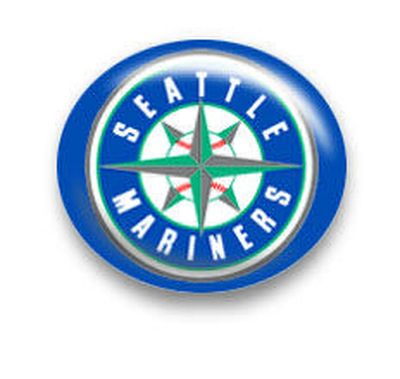Montero’s demotion a necessary step

Jesus Montero, or what’s left of him, shuffles away to Class AAA Tacoma now, head down, confidence shot, prospects of recovery unknown.
Sixteen months ago, when he arrived in Seattle via the controversial Michael Pineda trade, Montero was a hyped New York Yankees prospect. Yankees general manager Brian Cashman said of Montero: “He may well be the best player I’ve ever traded.”
When the Mariners demoted Montero on Thursday, he may well have been the most ineffective player on their 25-man roster.
At the moment, he can neither hit nor play defense. It was once feared that Montero, supposedly a hitting savant, would be a one-dimensional player. He has been a no-dimensional player so far this season. That’s why this move warranted zero debate. It had to happen. It was inevitable.
For the first time in his professional baseball career, Montero is reeling. He had some struggles last season, but not like this. A year ago, during his first full big-league year, the young catcher managed a .260 batting average and 15 home runs, which wasn’t bad for a 22-year-old. This season, he can’t even position himself correctly and keep his foot on home plate to get a force out.
Montero is hitting .208. His on-base plus slugging percentage is a poor .590. He has five extra-base hits in 110 plate appearances. Defensively, he’s even worse. Opponents have stolen 23 bases in 24 attempts against him. He struggles at framing pitches and just about every other fundamental of catching. He’s so bad that you often fear for his health behind the plate. Montero’s poor play forced manager Eric Wedge to turn to Kelly Schoppach.
While it would be foolish to give up on Montero at age 23, it’s impossible not to be worried about his deficiencies, which go beyond the numbers. There are concerns about Montero’s mental makeup because, for such a celebrated minor-league hitter, he rarely has a plan when he comes to the plate, and he lacks strike-zone discipline. There are concerns about his athleticism, and though you don’t have to be LeBron James to excel at baseball, Montero’s physical limitations are bothersome, and it isn’t just that he suffers from speed depravation when running. And there are concerns about his overall discipline and commitment to maximizing his talent.
That’s a Triple Crown of Uh-Oh.
This is a career-defining time for Montero, and he should treat it with appropriate seriousness. He needs to show the desire to improve, and if he does, he can recover and remain a vital part of the Mariners’ future. But he should expect a fairly long stay in Tacoma (at least a month, perhaps longer).
The cold reality that Montero must accept: Right now, the way he’s playing, he’s not even the most useful Jesus in the organization. The Mariners are better with Jesus Sucre replacing Montero because at least Sucre is a serviceable defensive catcher. Sucre can probably hit .208 by accident, too. If Montero isn’t hitting, he is simply not worth enduring his follies behind the plate.
Montero isn’t the Mariners’ only problem. But with him contributing so little, he had to be the first one to go.
Returning to Class AAA shouldn’t be considered his death sentence. It’s an opportunity to revise and redirect what could be a long career.
But the catching charade must end, and it appears the Mariners are thinking the same. Montero is going to Tacoma to work on his hitting. We’ve seen enough to know he can’t be more than an occasional catcher. But there’s still an upside to Montero as a designated hitter, if he’ll develop the proper routine and mindset to be able to perform in that role.
Does he fit in long term with the Mariners? Only his bat can answer that question. And that thing has been on mute for too long.
Perhaps this humbling step back will end the silence.